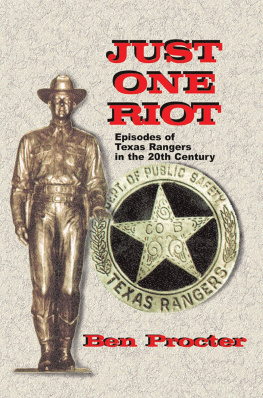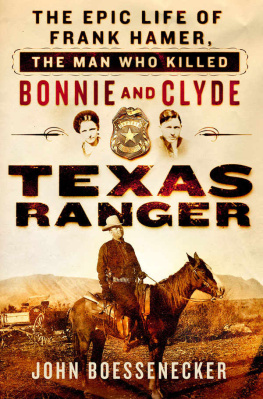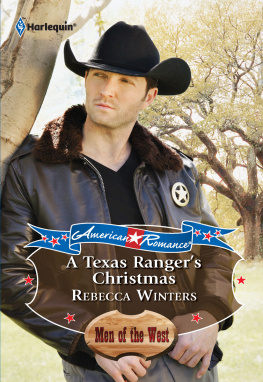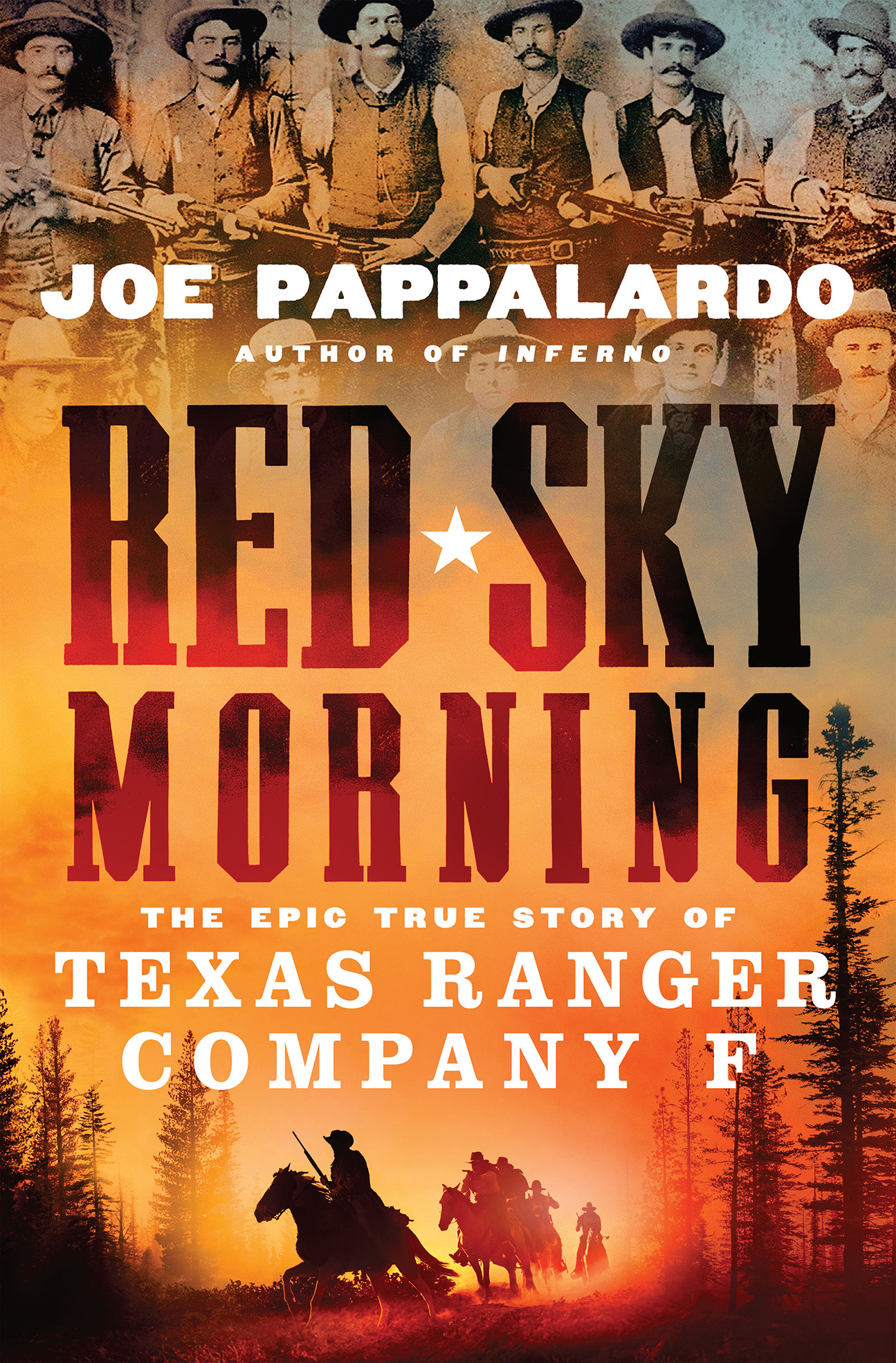Contents
Guide
Pagebreaks of the print version

The author and publisher have provided this e-book to you for your personal use only. You may not make this e-book publicly available in any way. Copyright infringement is against the law. If you believe the copy of this e-book you are reading infringes on the authors copyright, please notify the publisher at: us.macmillanusa.com/piracy.
For Amber, who keeps getting better
Truly the universe is full of ghosts, not sheeted churchyard specters, but the inextinguishable elements of individual life, which having once been, can never die, though they blend and change, and change again forever.
H. Rider Haggard, King Solomons Mines
Dont bother about being modern. Unfortunately it is the one thing that, whatever you do, you cannot avoid.
Salvador Dal
Red sky morning, I know its real
Red sky morning, go for my steel
Fight gonna come, I got a black cat bone
When the morning comes, Im gonna stand alone
Red Sky Morning, Gangstagrass
THE RECRUIT
January 15, 1883
James Brooks takes in Cotulla and sees progress where others would only see squalor. Its grown since his last visit, two years ago. The town is now a backwater of twenty or so one- or two-room wooden shacks connected by muddy trails just wide enough for a wagon. The truly desperate dwell in lean-tos.
However, theres also a brand-new building on Front Street, the heart of the emerging community. The recently opened La Salle Hotel, the only structure of any size in Cotulla, is also the only inn of any repute. In comparison, reflective of Cotullas priorities and his own, there are three saloons in Cotulla when Brooks arrives there in January 1883.
Hes a reasonably tall man at five foot ten inches, but with shoulders that drop as if weighed down by heavy hands. Under his worn trail hat, Brooks has a slightly pinched nose and oddly cool blue eyes. His frame is lean from years wandering Texas, hardened by outdoor work and time riding livestock trails.
Since his arrival in 1877, Texas hasnt shown him a path to stability. At age twenty-seven, hes already been a rancher, hired hand, mineral prospector, sheep farmer, aspiring groomand nothing worked out. Brooks has no wife, no family in the state, and no steady job. He drinks too much whiskey, as befitting a man born in Bourbon County, Kentucky. Hes essentially a man with nothing to lose. A place like Cotulla could revive or ruin him.
The town is the brainchild of Polish immigrant and rancher Joseph Cotulla, who, in 1881, successfully wooed the International & Great Northern Railroad to his shady hamlet with free land. The freshly minted municipality is now selling new lots to the west of a freshly built train depot. Cotulla, already holding the reputation for being rowdyconductors announce arrival there by calling out, Cotulla! Everybody get your guns ready!is poised to become a booming cattle town.
Brooks certainly isnt put off by Cotullas reputation, and had a memorable time there during a previous visit. Liquored up in a Cotulla saloon in 1881, he witnessed Texas Ranger Lee Hall face off against six armed menand back them down bloodlessly through nerve alone.
This vivid encounter is undoubtedly on his mind on January 15, 1883, when he sits down with Lieutenant Charles Girlie McKinney, acting commander of the Texas Rangers Company F, stationed in Cotulla. Hes filling in after the resignation of Captain Tom Oglesby in November, but that doesnt stop him from accomplishing one of a captains main duties: finding new Rangers.
Brooks finds his own expectations rattled by his recruiter. He certainly doesnt fit the expected picture of a grim-faced, death-dealing Texas Ranger. McKinney is charismatic, quick-witted, and a natural storyteller. And his looks are not what you would call steely.
McKinney had the prettiest pink-and-white complexion, the mildest and softest blue eyes, golden hair which curled in little ringlets all over his head, a Cupids bow of a mouth, and an expression of feminine innocenceexcept when he was on the warpath, describes author N. A. Jennings, who knew him. The Rangers are the ones who nickname McKinney Girlie, but Jennings also notes that the man who attempted to impose upon Charley McKinney because of his innocent appearance invariably regretted it.
The Texas Rangers are already legendary in 1883, but few thenas nowhave a grasp on what they actually do. A Ranger of the time, Jennings sums up the organizations mystique and tendency to be misunderstood at the turn of the century: Nearly everyone has heard of the Texas Rangers at some time in his life, but how many know what the Rangers really are, or what are their duties? In a general way, everyone knows they are men who ride around on the Texas border, do a good deal of shooting, and now and then get killed or kill someone. But why they ride around, or why they do the shooting, is a question which might go begging for an answer for a long time without getting a correct one.
Part of the confusion comes from a tortured history of the term Texas Ranger. The moniker had been, even by 1883, applied to a myriad of volunteer militia, mounted police officers, and military units. Texas Rangers could mean members of the Ranging Corps (18361845), the Rangers, Mounted Volunteers, and Minute Men (18461861); the Mounted Regiments and Frontier Regiments during the Civil War (18611865); the Frontier Forces (18701873); or the short-lived Frontier Men (1874). Each name came with a different mandate and historical imperative based on who needed protection and who the state deemed in need of shooting.
The Frontier Battalion forms in 1874 as the first permanent force of Texas Rangers. Their first foes are Comanche and Kiowa, and the Rangers get bloody putting them down. But by the mid-1870s, the Indian presence has largely been crushed and tribal lands ceded to the United States. The Rangers fixate on a new targetcriminalsand by necessity transform from military cavalry militia into roaming, mounted police officers.
When Brooks sits down with Girlie McKinney, the Rangers chief concerns are politically motivated fence saboteurs, violent strikers, and opportunistic thieves. The governor responded to the increasing constituent requests for law and order by deploying the Texas Rangers, who are expected to bring results when the local law is ineffectual either because of a fear of the criminals or sympathy for them. As outsiders, they rely on both guile and deadly force to do their jobs, a mix that antagonizes locals. Who are the Texas Rangers? asks one turn-of-the-century magazine. By many he is regarded as a sort of legalized vigilante, ruling through the right evolved of necessity in the realm where the six-shooter is the only arbiter.
When it comes to the Texas Rangers, James Brooks likes what he hears. Its a life that will satisfy his rootless disposition, and at forty-five dollars a month. McKinney must see the potential in the quietly experienced man. Companies routinely recruit teenagers, but someone with years spent riding the range brings more valuable skills, higher endurance, and better judgment. Brooks signs up as a private with Company F on the spot.
There is a sink-or-swim mentality when it comes to breaking in tenderfoots. Ranger hires are often done spur of the moment, and acceptance of a sudden lifestyle change is the recruits first test. Brookss first assignment comes that same week he joins. Hes going to crash a wedding.







